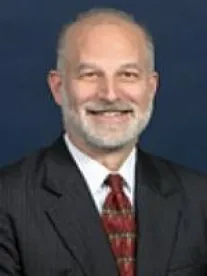FINRA (Financial Industry Regulatory Authority) Dispute Resolution is planning to begin a Large Case Pilot Program on Monday, July 2, 2012. The pilot program will be entirely voluntary. Accordingly, no special Securities and Exchange Commission rule approval is required for the program. FINRA anticipates making the pilot program available in all cases where $10 million or more in damages is claimed, except for cases brought by a pro se claimant. FINRA is currently administering more than 200 cases where $10 million or more has been claimed.
The pilot program will be available to all new cases filed on or after July 2, 2012. FINRA also anticipates making the program available to previously filed cases where arbitrators have not yet been selected. The pilot program will cover both customer and industry disputes.
The concept underlying the pilot program is the fact that parties to an arbitration are free to reach an agreement to use procedures other than those provided for in the FINRA Code of Arbitration Procedure. (In fact, FINRA has made it clear that, even in cases involving less than $10 million in claims, the parties are free to vary the Code procedures by agreement.) The goal of the pilot program is to formalize this concept and bring it front and center. Accordingly, in all cases eligible for the pilot program, the parties will receive a letter from FINRA advising them of the program. It is anticipated that the letter will discuss some of the key areas that the parties may focus on, including arbitrator selection, extended discovery, enhanced hearing amenities and locations, and specially trained case administrators.
FINRA anticipates that, at the beginning of the program, the letters will be followed up by telephone calls from FINRA (probably the applicable Regional Director), to see if the parties are interested in participating in the program. If so, it is anticipated that there would be a follow-up meeting to see if the parties can reach an agreement on the procedures that they would use. If an agreement was reached, the case would the be administered by someone from a pool of specially chosen case administrators.
FINRA has been conducting focus group meetings with experienced claimants’ and respondents’ counsel in order to prepare for the pilot program. Much of the focus group discussion has centered on arbitrator selection, and there appears to be unanimous agreement that there is a need for better arbitrators in large cases. A number of arbitrator selection methods have been discussed, including parties could agree to use non-FINRA pool arbitrators (and pay them accordingly), parties could agree to use specific arbitrators from the FINRA pool, parties could ask FINRA to use agreed-on criteria in providing the potential arbitrators whose names would appear using the current list selection method (e.g., only include arbitrators who were former judges, only use arbitrators who were in the discovery arbitrator pool, only use arbitrators who have chaired cases, only use arbitrators who have sat on a certain number of cases, etc.), or parties could agree to unlimited strikes/multiple lists until they get a panel acceptable to all parties.
FINRA anticipates charging a higher fee to administer cases in the program because it is anticipated that case administrators will spend more time on these cases. Also, while a lot of options are out there for arbitrator selection, FINRA seemed to think that, in most cases, the parties would be agreeing to pay non-FINRA pool arbitrators at an hourly rate (similar to the methods employed at the AAA or JAMS).
FINRA anticipates that, as part of the pilot program, there would be a requirement to spell out in a written agreement whatever procedures the parties agreed to and whatever arrangements were made regarding payments (whether for more expensive non-FINRA arbitrators or for court reporters or anything else). FINRA is gathering some form agreements from cases where the parties have already agreed to varied procedures.
FINRA recognized that it will also have to address the issue of what would happen if a claimant decided not to pay a non-FINRA arbitrator because the claimant did not like the arbitrator's rulings. FINRA is considering whether deposits should be required (as in mediations) and/or whether FINRA should dismiss the case and refuse to administer it in the event that the claimant fails to meet its agreed-upon payment obligations. (FINRA sees no issue with industry members not paying because FINRA has control over them.)
FINRA has stated that one of the long term goals of the program is to build a cadre of more-qualified arbitrators. FINRA has also noted that it would like to expand its services to all financial-related disputes and would begin to focus on the investment adviser field. Finally, during the next year FINRA expects to put virtually the entire arbitration administration process online -- everything from filing claims and answers to arbitrator selection to calendaring. FINRA anticipates that this will help improve its performance and expand its role.



 />i
/>i

